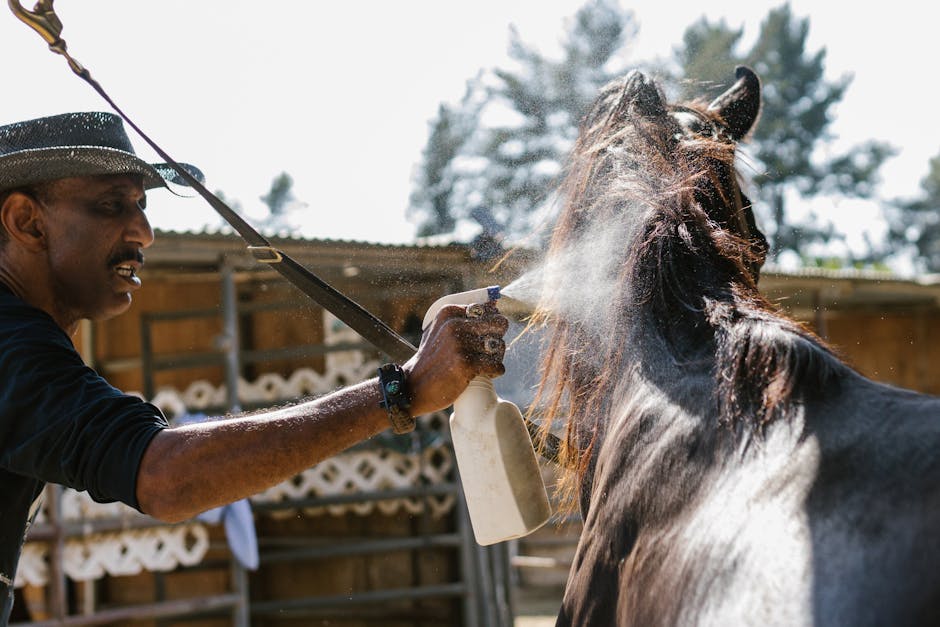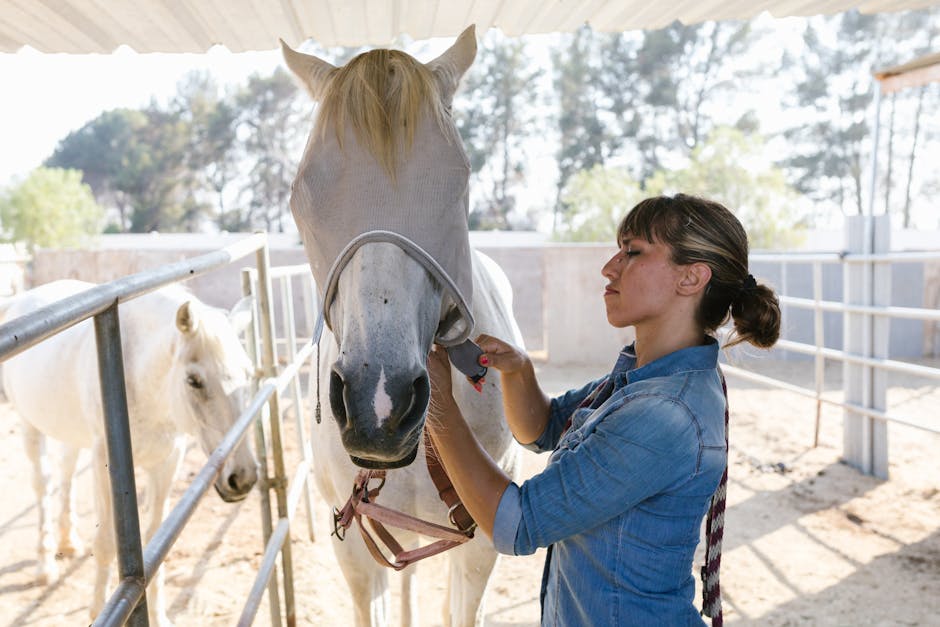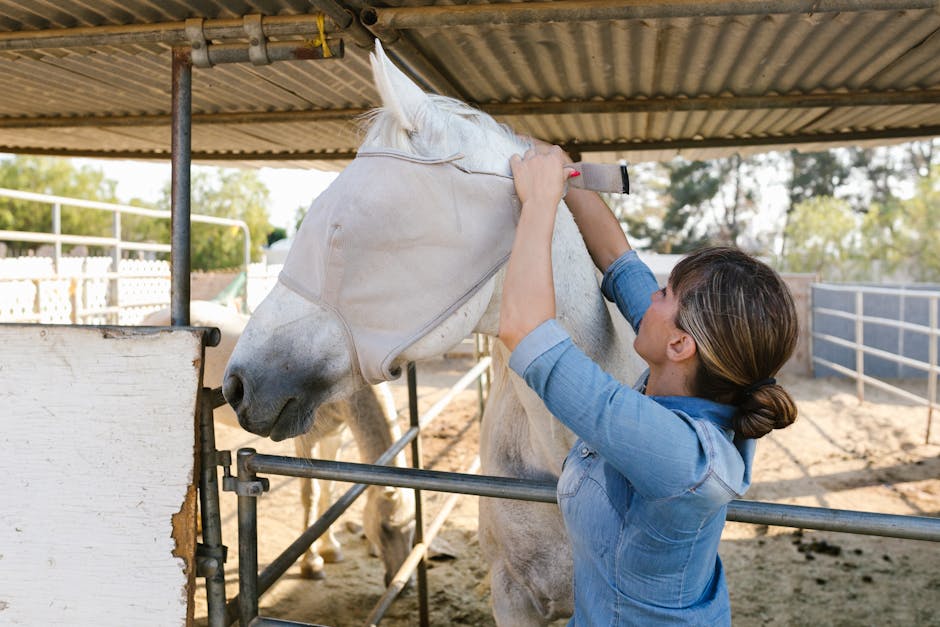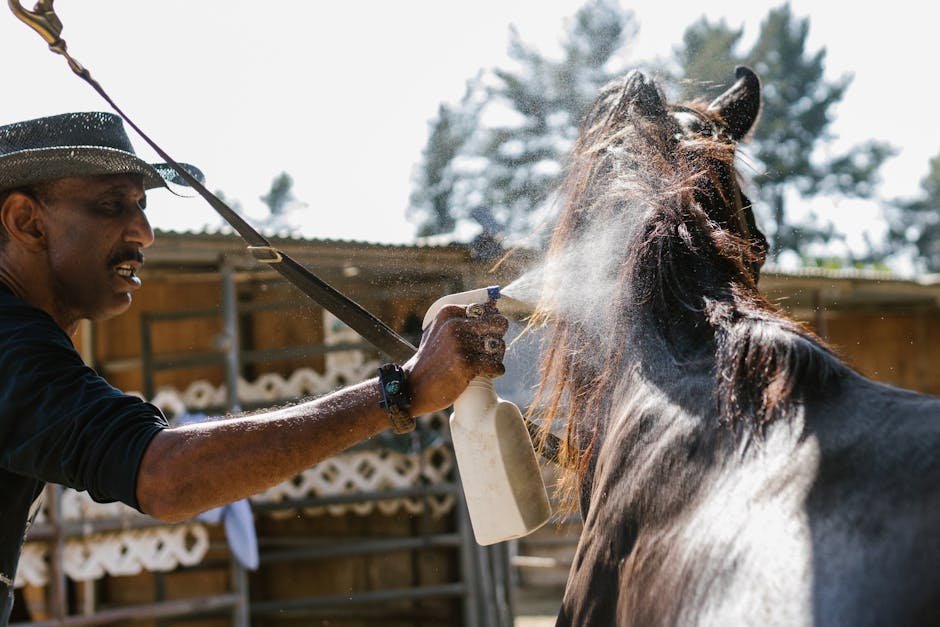The Ultimate Guide to Barn & Stable Fly Spray: Choosing the Right Protection for Your Animals
Dealing with flies in your barn or stable is a constant battle for any livestock owner. These pesky insects not only cause significant irritation and discomfort to your animals, leading to decreased productivity and weight loss, but can also transmit diseases. Choosing the right barn and stable fly spray is crucial for maintaining a healthy and productive environment. This comprehensive guide will walk you through everything you need to know, from understanding different types of fly sprays to selecting the best product for your specific needs and applying it safely and effectively.
Understanding the Enemy: Types of Flies Affecting Barns and Stables
Before selecting a fly spray, it’s essential to understand the types of flies you’re dealing with. Common culprits include:
- House Flies: These are common nuisance flies that breed in manure and decaying organic matter.
- Stable Flies: These biting flies are particularly aggressive and can cause significant discomfort and stress to animals. They are known vectors for diseases.
- Horn Flies: These small flies cluster around the backs and flanks of cattle, causing irritation and reduced milk production.
- Face Flies: These flies are attracted to the eyes and faces of animals, causing irritation and potential for disease transmission.
Different fly sprays are formulated to target specific types of flies, so identifying the prevalent species in your barn is the first step towards effective pest control.
Types of Barn and Stable Fly Sprays
The market offers a variety of barn and stable fly sprays, each with its own strengths and weaknesses. Here are some common types:
- Pyrethroid-based sprays: These are fast-acting and effective against a wide range of flies. However, some insects have developed resistance, and they can be toxic to beneficial insects and wildlife if not used carefully.
- Organophosphate sprays: These are potent insecticides, but they are also more toxic to mammals and require careful handling. They are generally less common now due to environmental concerns.
- Natural or organic sprays: These sprays utilize essential oils, such as peppermint, lemongrass, and cedar, to repel flies. They are generally safer for animals and the environment, but may be less effective than synthetic sprays.
- Insect Growth Regulators (IGRs): These sprays disrupt the life cycle of flies, preventing them from reproducing. They are often used in conjunction with other sprays for a more comprehensive approach.
Choosing the Right Spray for Your Needs
The best fly spray for your barn or stable will depend on several factors:
- Type of livestock: Different animals have different sensitivities to different chemicals. Always check the label to ensure the spray is safe for your animals.
- Type of flies: Some sprays are more effective against specific types of flies than others.
- Environmental concerns: If you’re concerned about the impact on the environment, opt for a natural or organic spray.
- Frequency of application: Some sprays require more frequent application than others.
- Cost: Fly sprays range in price, so consider your budget.
Safe and Effective Application of Barn and Stable Fly Spray
Applying fly spray correctly is critical for maximizing effectiveness and minimizing risks. Always follow the instructions on the product label carefully. Here are some general guidelines:
- Apply in a well-ventilated area: Avoid spraying in enclosed spaces without adequate ventilation.
- Protect yourself: Wear protective clothing, including gloves, eye protection, and a respirator, when applying the spray.
- Spray evenly: Cover the entire area to be treated, paying particular attention to areas where flies tend to congregate.
- Avoid spraying directly onto animals: Unless specifically instructed on the label, spray the surroundings rather than directly on your animals. Maintain a safe distance.
- Store properly: Store fly spray in a cool, dry place, away from children and pets.
- Dispose of properly: Follow the instructions on the label for proper disposal of empty containers.
Beyond Spray: Integrated Pest Management for Flies
While fly sprays are an effective tool in fly control, they are most effective as part of a broader integrated pest management (IPM) strategy. This involves combining various methods to minimize fly populations and their impact. Consider these additional strategies:</
- Manure management: Regularly remove manure to eliminate breeding grounds for flies.
- Improved sanitation: Keep the barn clean and free of debris.
- Fly traps: Use fly traps to capture and kill adult flies.
- Fly screens and doors: Prevent flies from entering the barn in the first place.
- Biological control: Introduce natural predators of flies, such as parasitic wasps.
Choosing a Reputable Supplier
When purchasing barn and stable fly spray, it’s crucial to source it from a reputable supplier. Look for suppliers who offer a wide range of products, provide clear and accurate information, and have a good reputation for customer service. Read online reviews and compare prices before making a purchase.
Frequently Asked Questions (FAQs)
Q: How often should I apply fly spray?
A: The frequency of application depends on the specific product and the level of fly infestation. Always refer to the product label for instructions.

Q: Are all fly sprays safe for my animals?
A: No, some fly sprays contain chemicals that can be harmful to animals. Always check the label to ensure the spray is safe for your specific type of livestock.
Q: What should I do if my animal gets fly spray on its skin?

A: Immediately rinse the affected area with plenty of water. If you notice any adverse reactions, contact your veterinarian.

Q: How can I dispose of empty fly spray containers?
A: Follow the instructions on the product label for proper disposal. Never throw them in the regular trash.
By understanding the different types of fly sprays available and implementing an integrated pest management approach, you can create a healthy and comfortable environment for your livestock and significantly reduce the nuisance and potential health risks associated with barn and stable flies.

